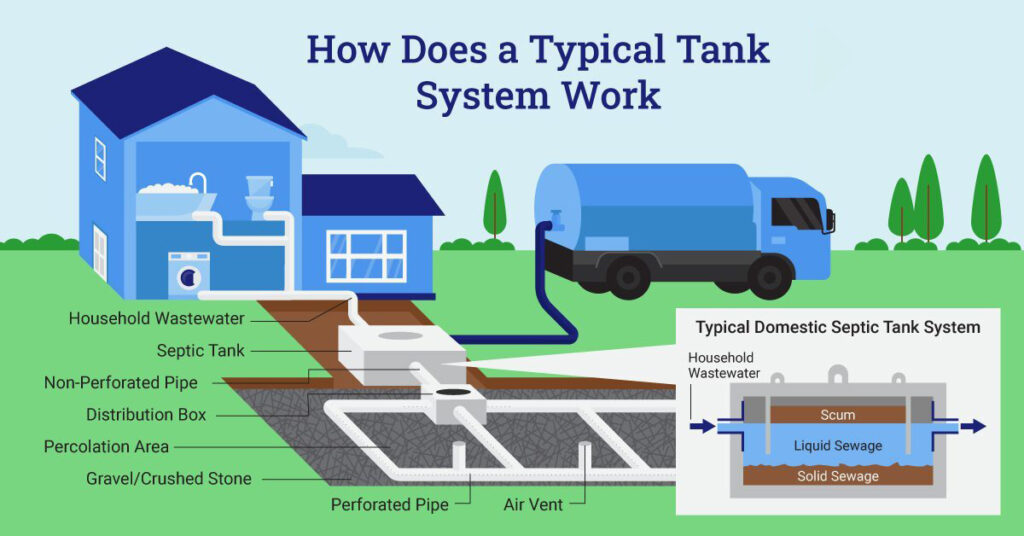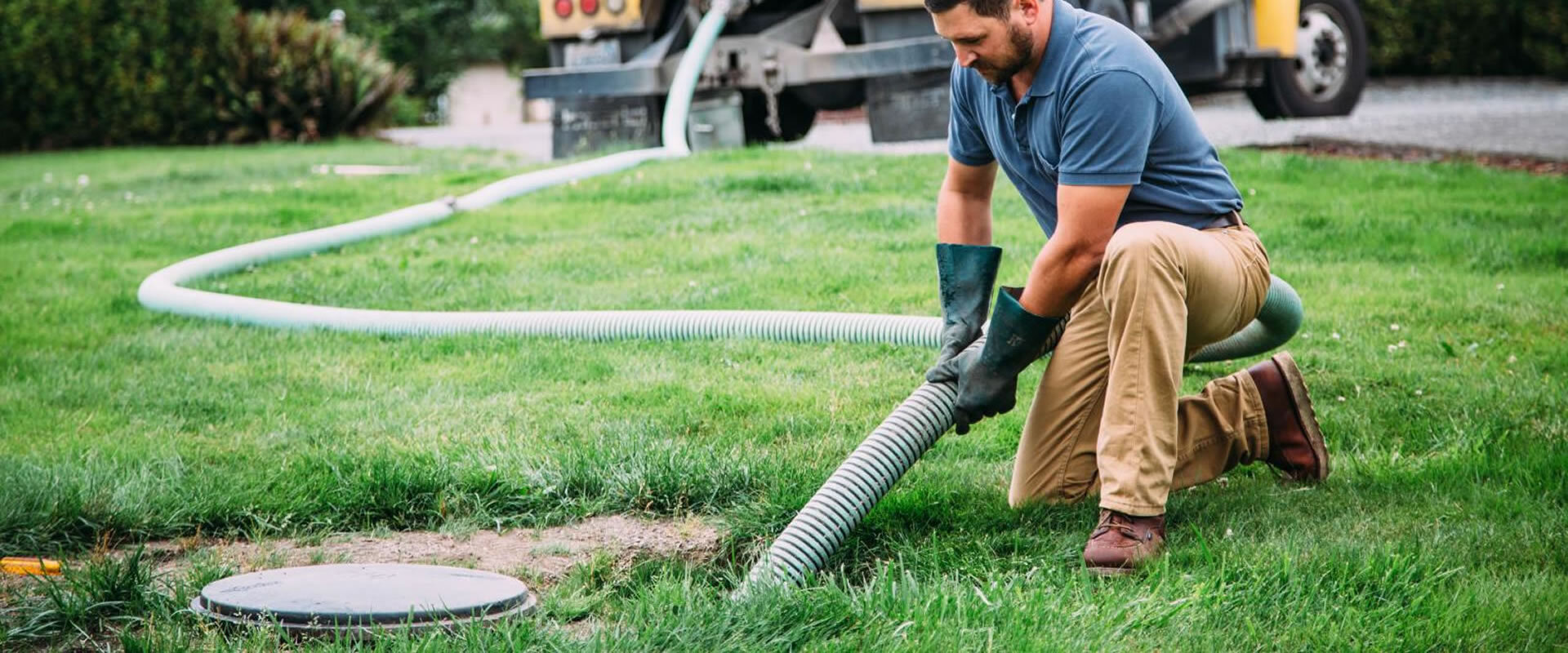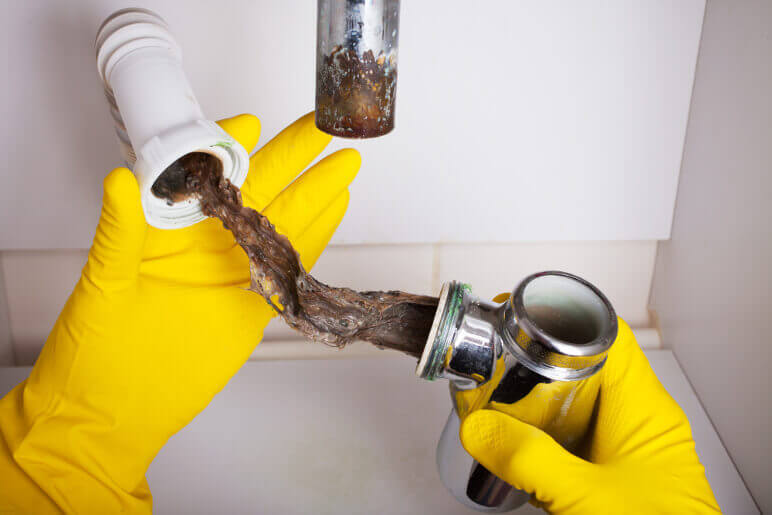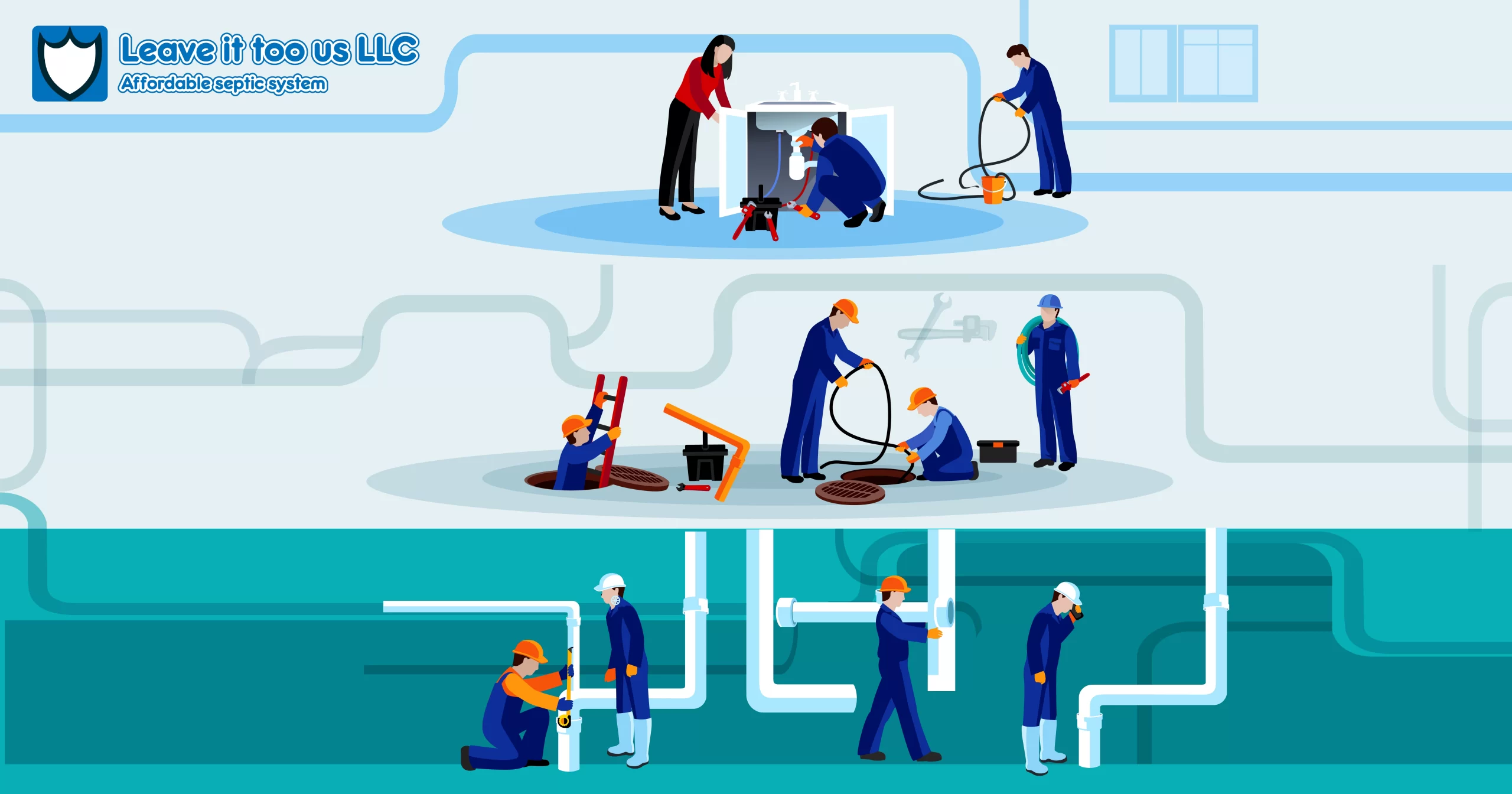I’m just frustrated with this smelly brown liquid overflowing again. Can anyone please guide me why my septic tank backing up after being pumped? What should I do about it?”
If this sounds like you, take a deep breath and continue reading this article attentively.
You’ll finally GET THE TIPS ON WHAT YOU SHOULD DO TO AVOID this chaotic situation.
We tried almost every remedy to get rid of this septic system backup issue, but in vain. However, finally, an expert dropped some knowledge on us that we are eager to share with you.
This guide explores the pumping process, what actions you can take, and how you can look for the right person for the job. Let’s dive in!
How Does Septic Tank System Work?
So, before finding a remedy for your septic tank backup, it is essential that you first learn how your septic tank functions.

Your septic tank receives everything you flush down the toilet and the drain. At least that’s the concept. If something is obstructing the path, it won’t get very far. The septic system backup occurs when your drains are clogged and don’t have a direct channel to the tank.
For instance, a network of tubes and pipes connects your sink to your septic tank. All your drains are combined into one big pipe, which then travels to the septic tank.
After a while, liquids and solids fill your septic tank. Over time, the solids will decompose organically, but the fluids will never. For this purpose, tanks always have pumps and sensors to dispose of fluids after crossing a particular level.
The liquids will seep below the surface, and the earth’s crust will absorb it. But wait! All this sounds so simple and sorted out.
Why do I need to pump regularly to avoid septic tank backup in the first place? And why is my septic tank backing up after being pumped?
What Happens When You Pump a Septic Tank?

Septic tank pumping accomplishes precisely what it seems like. An expert from septic pumping services arrives at your home, examines your tank, and removes materials that won’t decompose. Specifically, the residue and muck that remains in the tank.
This way, if you remove these, your septic tank has more space for solid waste that breaks down naturally.
Now, you might think these experts pump out everything from your tank. Nope! This is not how it works. Instead, emptying your tank will eliminate the beneficial microorganisms that support the processes occurring within.
In most scenarios, your septic tank backup won’t occur for a few days after pumping up, and your septic system will work completely fine. After a while, everything starts to deteriorate again, which is a sign of a more serious issue.
You now know the broad ideas involved in this. Let’s dive deep into why your septic tank backing up after being pumped.
My Septic Tank Pumped But Still Backing Up? Why?
So, let’s get back to our main question: why is my septic tank pumped but still backing up?
Well, pumping merely aids in problem prevention; it doesn’t solve existing problems. Most of the time, an expert pumping the tank is not doing so to unclog anything.
Pumping on a regular basis keeps the process going in your tank. It keeps the undesirables out and allows the good things to function. Even though it’s difficult to describe the contents of your tank as “good,” just leave it.
There may be a clog, obstruction, or broken portions in other parts of your system, which is why your septic system backup. Recall that your septic system has many more components than just your tank.
The true challenge to resolve your septic tank backup is locating the barrier.
What You Can Do to Avoid Septic Tank Backup?
Solving your septic tank issues is not about the flick of a magic stick. But here are a few measures to avoid experiencing what happens when septic tank backup.
Examine beneath your sink
If one or two sinks, in particular, are experiencing water backups, there may be a local system issue.
There is a little piece of plumbing in the cabinet beneath your sink. There, in the form of a U-shaped piece of pipe, is your P-trap. Withdraw the P-trap from this structure by unscrewing it from both ends and placing a container below it.
Try to locate an obstruction in either pipe segment. Try snake-ing both piping portions to see if it solves the issue.

Look for any clogged pipes
Although it’s simpler to say than do, you can solve your issue by locating a clogged pipe. It’s possible that a pipe above the tank is the cause of your ongoing issue.
In this situation, you must identify the malfunctioning component in your system. Your primary pipe leading to the tank is blocked if every one of your drains is backing up. Other than hiring an expert, there isn’t much you can do in this situation.
Your home’s plumbing in that region might have to be cleared if a portion of it is backing up.
If you’re lucky and you can reach the clog, go ahead and get a drainage snake. Be cautious when twisting the snake a great deal, and work the blockage slowly. Should it be successful, the pressure throughout the house ought to return to normal.

Employ mild chemicals
Using strong chemicals will damage your system by upsetting the microbes in your tank. This can be fixed by mixing vinegar with baking soda powder.
Place it in the preferred drain and give it around two hours. Use hot water to flush the line after that period of time.
This only functions in small-block situations. The excellent thing about this method is that it doesn’t require you to be able to reach or see the obstruction.

Locate a Pro
Speak with an expert is the final option. Hire an expert if you are unable to locate or remove the obstruction, and you wish to stop wasting time.
If you’re uneasy about your septic system, this is also a wise course of action. During the troubleshooting process, you might see, smell, and touch some fairly disgusting things, but you won’t necessarily harm your system.

How to Locate the Best Expert
After getting in touch with an expert, they will utilize their prior expertise and understanding of septic systems to identify and resolve the issue.
They may be following some of the above-described procedures. Here, the distinction is in the use of stronger chemicals and instruments.Furthermore, their prior experience has much to be said about.
You should look up your area on the internet when you’re looking for a pro. Additionally, you can find out what businesses your neighbors, friends, family, and coworkers recommend by asking them.
Thus, how can you choose which professional is best?
Locate an Expert in the Field
The most crucial step is to locate an experienced person. A novice checks your system and declares there is no problem when there is the final thing you need. A professional in septic systems will know how to identify the issue, what actions to take, and where to look.
You might try problem-solving on a phone call and listening to their answers to your inquiries to gauge the person’s competence.
Speak with Several Companies
I can tell you from experience that when you’re trying to hire a contractor, it’s usually a good idea to contact a few different organizations.
It will assist you in this situation to comprehend your available selections. After having the same talk with several different parties, you will gain a sound idea of their expertise, cost, and capabilities.
It also assists you in identifying businesses that aren’t worth your attention.
Think About the Price
This puzzle also has a large price component. When you request quotations, you will surely receive a range of numbers.
Although the cost of their visit may differ, you should budget between $100 and $500 for their travel. Additionally, this figure varies based on your location, the age of your system, and the complexity of the repair.
When you come upon a quote that seems too high or low, proceed with caution. This suggests that you should not rely on them to resolve your issue due to their lack of expertise.
Wrap Up
To sum up, we can say that what happens when septic tank backup is not what one wants. It can get on your nerves when dealing with this issue.While there’s no guaranteed solution to this problem, you can take a few measures to prevent backup issues. We hope you find this guide helpful and gain valuable insights to tackle your filth-filled tank.

